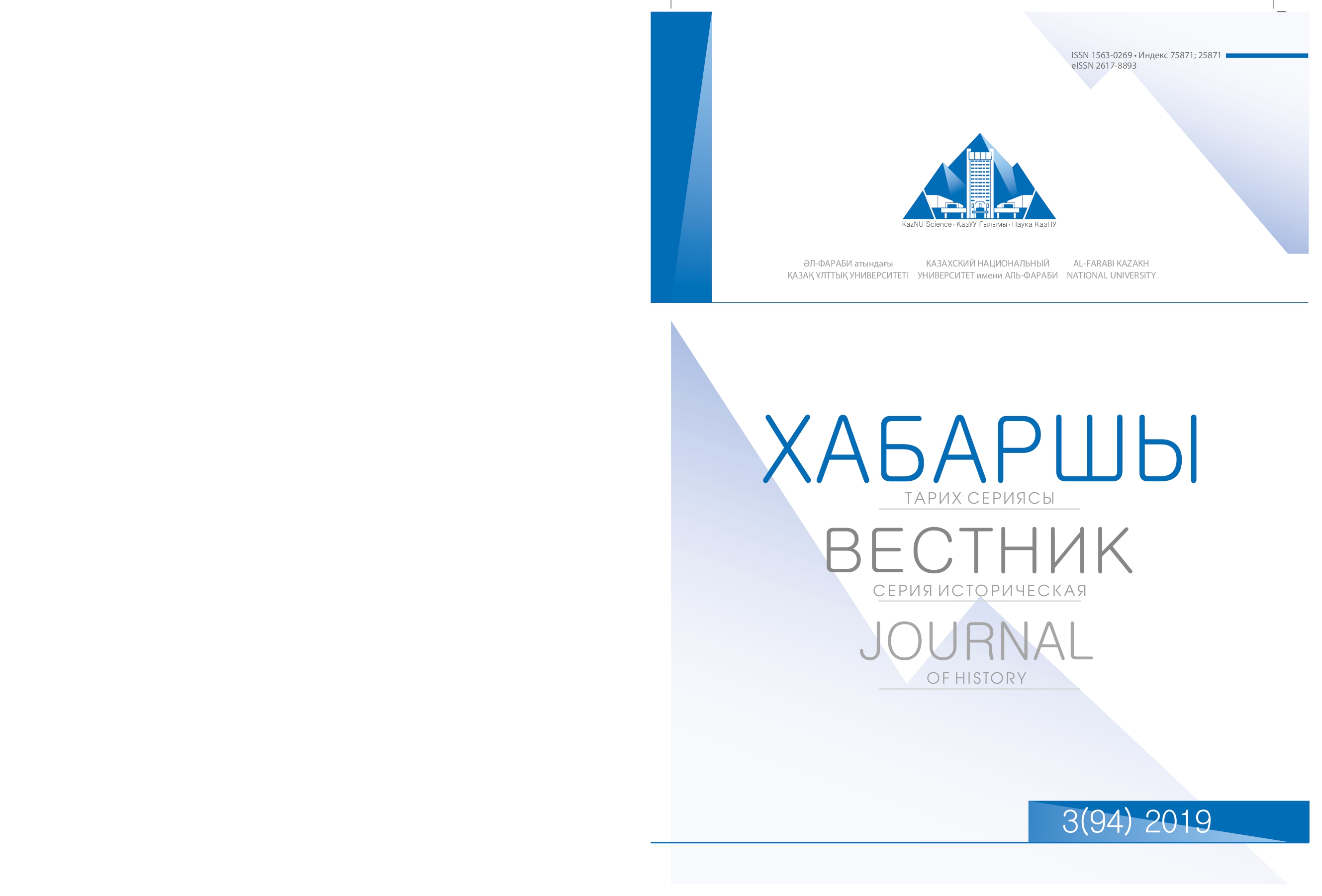Analysis of scientific concepts and methodological principles of communication with the formation of the theory of power of a nomadic society
DOI:
https://doi.org/10.26577/jh-2019-3-h14Abstract
The article considers the analysis of scientific concepts and methodological principles of connection with the formation of the theory of power of a nomadic society. In the scientific literature, nomadic society and the problems of the internal structure of power have for many years been the center of discussion. At this time, conceptualization of the theory of transformation of the socio-political problems of a nomadic society is emerging, revealing the meaning of the formation of political institutions in the structure of power, as well as the need to analyze scientific concepts and methodological principles on changing social structure in a nomadic society. Problems as personal property, hereditary share, state structure, theoretical aspects of power are manifested in the XVII – XIX centuries, among such scientists as G. Hegel, J. Boden, F. Voltaire, D. Didro, J. Condorcet, J.-J. Russo, A. Smith, A. Turgot and A. Fergusson. Along with scientists who consider the power system of nomads with the influences of Marxist theory can be seen in the works of A. Aristov, N. I. Grodekov, G.N. Potanin and also A.N. Kharuzin. A.Kh. Margulan., K.A. Akishev., Z.S. Samashev., Т.T. Toleubaevi and other archaeological scientists will examine the power structures of the early nomads, in connection with archaeological data.












